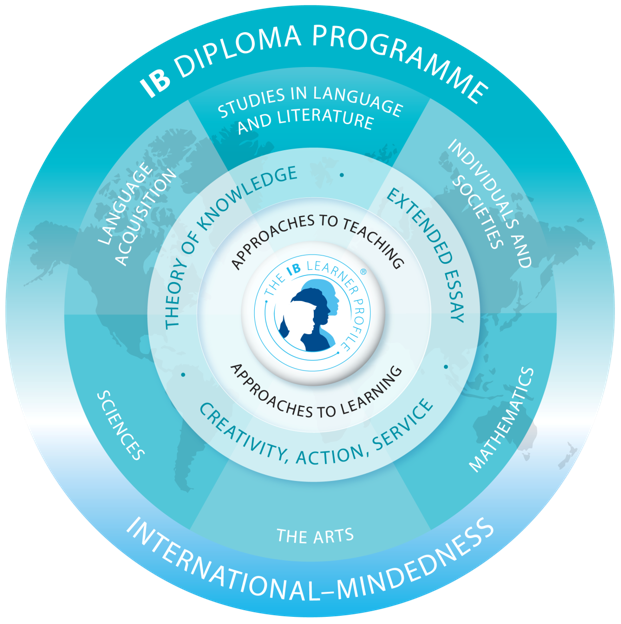
IB PYP, MYP and IBDP
The International Baccalaureate (IB), an international education board was established in Geneva, Switzerland in 1968. It offers students a standardized global education that provides them with lifelong practical learning experience through an international curriculum. There are four IB programmes, which are age related: - The Diploma Programme (DP) for students aged 16 to 19. - The Middle Years Programme (MYP) for students aged 11 to 16. - The Primary Years Programme (PYP) for students from 3 to 12 IBDP- Students can choose to do subjects at Higher Level, Standard Level or both. To qualify for the Diploma a student must pass at least three subjects at Higher Level and a total of six from the optional subject list. A candidate can receive between 1 and 7 points in each category. They can get up to 3 points for Theory of Knowledge and Extended Essay- meaning a maximum score of 45 points, which only a small number of candidates actually achieve. In addition, students must complete a project on Creativity, Activity, and Service (CAS). A Diploma is awarded to those scoring 24 points or more. CAS does not contribute to the overall score, however, it must be completed to gain the full Diploma. MYP- Children are taught to become learners, thinkers, communicators, risk-takers, knowledgeable, carers, open-minded, balanced and reflective. The curriculum will generally be subdivided into: Language and literature, Language acquisition, Individuals and societies, Sciences, Maths, Design, Arts, Physical and Health Education. MYP students are generally marked on grades 1 (very poor) to 7 (excellent). PYP- learning is focused around six global themes that encompass the knowledge base for children in the 21st Century- who we are, where we are in place and time, how we express ourselves, how the world works, how we organize ourselves, sharing the planet. The subjects include- Arts, Language, Science, Social studies, Mathematics, Personal, Social and Physical Education.
